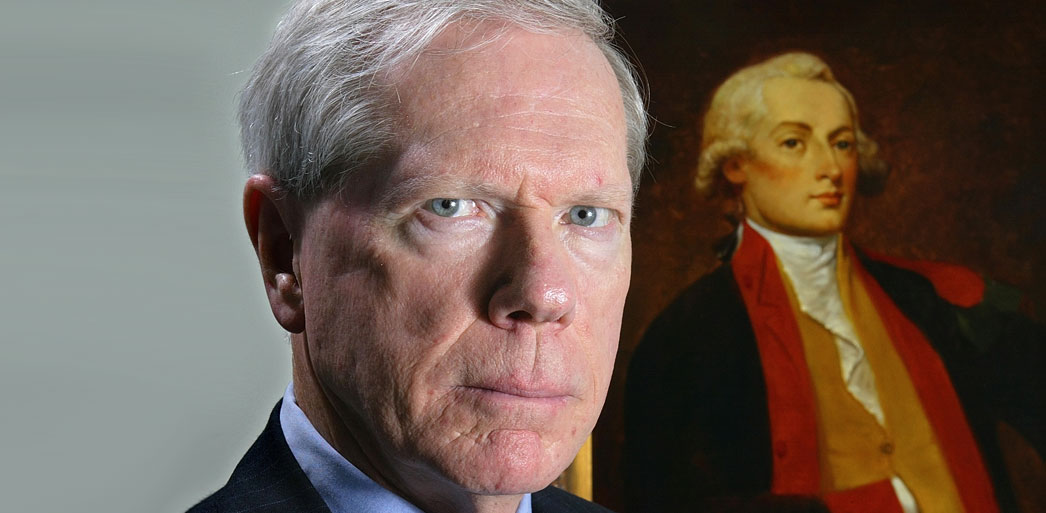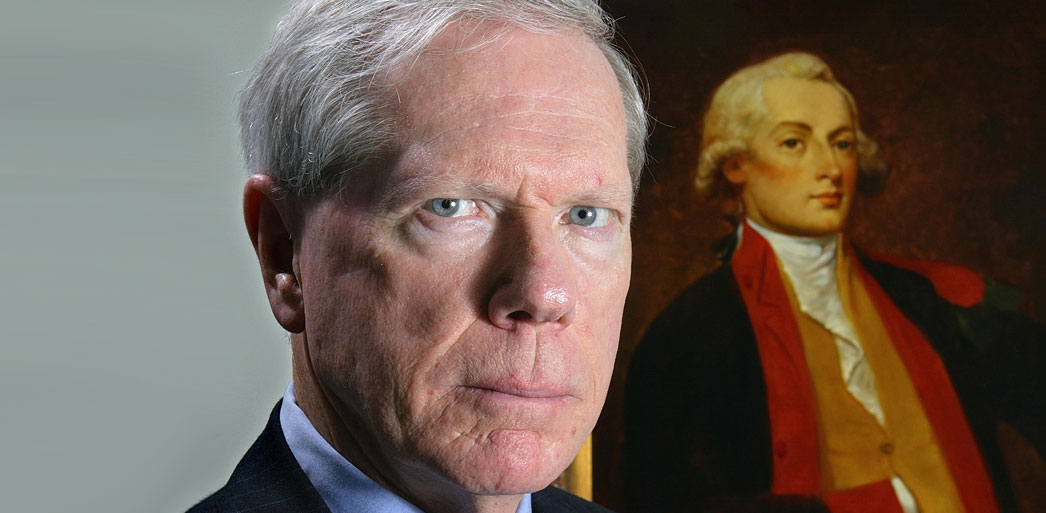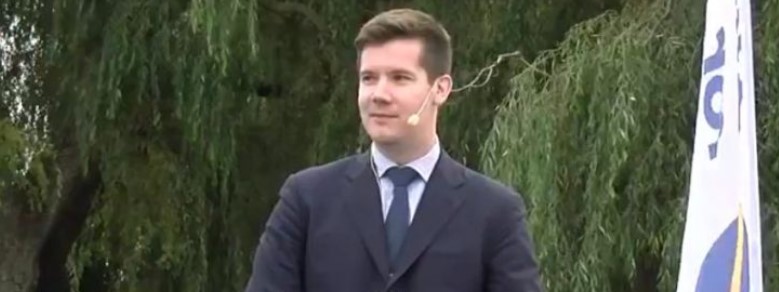Charlie Hebdo shootings served as an extreme example of the history of attacks on satirists
As the trial of alleged accomplices to the attack on Charlie Hebdo recently got underway in Paris, the magazine republished caricatures of the Prophet Muhammed.
Published: October 6, 2020, 8:34 am
It was a defiant act. The same images were cited as the grievance that led two killers to shoot dead 12 people at the magazine’s offices in a terror attack in 2015.
Previously, the paper’s offices had been firebombed when a caricature of the Prophet Muhammed was run on the cover of a November 2011 issue. Charlie Hebdo runs cartoons satirizing other religions, including Christianity.
Depictions of the founder of Islam are forbidden in the Sunni branch of the faith. As a result, what was intended as satire was perceived as blasphemous by observant Muslims and as an unforgivable offense by extremists.
The attack on Charlie Hebdo was an extreme example of a long history of attacks on satire and those who create it. But satire can take many forms, as can its reprisals.
Satire as criticism
Indeed, condemnation of satirists has more commonly taken the form of censorship, public humiliation and imprisonment.
Aristophanes, who wrote satiric plays 2,400 years ago, was condemned during his lifetime for his depictions of citizens of Athens. Plato criticized the playwright for slandering Socrates as vain and arrogant in his play “The Clouds.”
In 1599, the bishops of Canterbury and London banned the publication of a variety of works, including those seen as satirical. Attacks on the privileged and powerful were seen as violating cultural norms and corrosive to social order.
And years before writing his best-known work, “Robinson Crusoe,” Daniel Defoe wrote satirical works that were critical of many prominent figures. Among his more popular work was “The True-Born Englishman,” which highlighted xenophobic prejudice in England against King William III, a Dutchman by birth.
In 1703, Defoe also criticized individuals who wanted to separate from the Church of England. In “The Shortest Way with the Dissenters” he accused separatists of being responsible for the English Civil War, among other crimes. Since Defoe was himself a separatist, his critique is considered to be a satiric attack on the leaders of the Church.
Defoe’s call to “crucify the thieves,” that is, the dissenters, led to him being accused of seditious libel. He was fined, endured public humiliation in a pillory and was then thrown in prison.
Authors of what is known as Juvenalian satire, criticism of contemporary persons or institutions, engage in a full-throated condemnation. In appearing to be advocating for the public good, they could also end up with outlandish suggestions. Perhaps the best-known example of this is Jonathan Swift’s 1729 essay, “A Modest Proposal,” in which he suggests that the Irish sell their babies as food for the rich. It was an attack on the attitudes of the wealthy and on British policies toward the Irish.
Needless to say, assaults like these can get under the skin of those being depicted as corrupt, cruel or dimwitted.
Mild or hidden satire
But there isn’t one form of satire. Satire can be fairly gentle as well. An example of so-called Horatian satire is Alexander Pope’s 1712 “The Rape of the Lock.” The poem describes a mundane incident – the cutting of a lock of hair without permission – in mock-heroic terms.
Pope’s poem is relatively good-natured. His goal was to poke fun at his own society and is therefore not particularly judgmental.
Then there is the use of caricature as a form of satire, which often gets away merely by exaggerating the physical characteristics of its intended targets. Barack Obama’s ears and Richard Nixon’s nose, for example, were often depicted as comically large by cartoonists during their respective presidencies.
But then, a work intended to be satiric may cease, over time, to be recognized as such. As I describe in my book on irony and sarcasm, an example may be the Historia Augusta, a fourth-century collection of biographies of Roman emperors.
Scholars Justin Stover and Mike Kestemont have pointed out that the manuscript is unusual in its “lurid focus on emperors’ peccadilloes and personal habits to the detriment of their political accomplishments.” There has been some discussion over the intent and purpose of such a text. Scholar Shawn Daniels, who has studied the text closely, concluded that the language of “quips and bad puns” suggest that the work was intended as satire.
Free speech and satire
In modern times, the liberty of free speech can often protect even harsh examples of satire.
In the U.S., for example, criticism of public figures is protected speech, so satire cannot be used as a basis for libel or to seek damages for emotional distress. In countries such as Italy and Germany, satire is explicitly protected by the Constitution. And France has a long tradition of satirists mocking religious and political institutions.
With regard to Charlie Hebdo’s caricatures of the prophet, there are those who question whether religious sentiments should not be taken into consideration. Many have described the caricatures, such as one depicting a bomb hidden in a turban, to be offensive to religious feelings and in poor taste. There have been protests across several countries condemning the republication.
In an editorial that accompanied the caricatures, the magazine has defended its actions. The editors stated that the drawings “belong to history, and history cannot be rewritten nor erased.”
Support for freedom of expression was evident in the slogan “Je Suis Charlie,” or “I am Charlie,” which was adopted by thousands soon after the attack in 2015.
Are there limits to such freedom of expression? The future of satire as a form of criticism may depend on a balance being struck between its practitioners and its targets.
Roger Kreuz is an Associate Dean and Director of Graduate Studies in the College of Arts and Sciences and Professor of Psychology at the University of Memphis.
All rights reserved. You have permission to quote freely from the articles provided that the source (www.freewestmedia.com) is given. Photos may not be used without our consent.
Consider donating to support our work
Help us to produce more articles like this. FreeWestMedia is depending on donations from our readers to keep going. With your help, we expose the mainstream fake news agenda.
Keep your language polite. Readers from many different countries visit and contribute to Free West Media and we must therefore obey the rules in, for example, Germany. Illegal content will be deleted.
If you have been approved to post comments without preview from FWM, you are responsible for violations of any law. This means that FWM may be forced to cooperate with authorities in a possible crime investigation.
If your comments are subject to preview by FWM, please be patient. We continually review comments but depending on the time of day it can take up to several hours before your comment is reviewed.
We reserve the right to delete comments that are offensive, contain slander or foul language, or are irrelevant to the discussion.

The inflation hoax
Yes, prices are rising, but not for the reasons the Federal Reserve says. When I say inflation is a hoax, I mean the purported cause is a hoax. The Fed is fighting a consumer inflation, a “demand-pull” inflation. But what we are experiencing is a supply-side inflation caused by the Covid lockdowns and economic sanctions that closed businesses, disrupted supply chains, and broke business relationships while reducing energy supplies to the UK and European countries, thus forcing up costs in a globalized economy.

Two-Party Pox: The Republicans suck and the Democrats want to kill you
The Republican Party has never stood up for Americans, will never stand up for them and is not going to do what it takes. Past is prologue.

Russia’s loss at Kharkov highlights crippling shortage of men
KharkovThe frontline in this case relied on heavily outnumbered 2nd rate Lugansk draftees plucked from the LPR.

A country without an honest media is lost
For some time I have reported to you that in place of a media, a media that our founding fathers relied on to protect our society, the United States has had a propaganda ministry whose sole purpose is to destroy our society.

Sweden’s decaying democracy
A journalist is arrested and dragged out of the Gothenburg Book Fair because he politely asked a powerful politician... the wrong questions about his support for the ethnically-cleansed Zimbabwean dictatorship. Not only journalists, but academics and bloggers are being hounded by the leftist establishment daily. And the leftists have all the nasty instruments of the state at their disposal. Citizen reporter Fabian Fjälling looks into their excesses.

The geopolitical future of Nordic countries
Between unity and disunity, independence and foreign interference: Nordic countries have to either choose between creating an independent neutral block in the North, or seeing the region being divided between the great powers.

Russian, Chinese intelligence: ISIS heading for Central Asia with US cover
Operatives of the crumbling Islamic State in Syria and Iraq (ISIS) are moving to new battlegrounds near the Russian border, intelligence sources have revealed.

The unraveling of US/Russian relations
Washington has taken nuclear war against Russia from a hypothetical scenario to a real danger that threatens the future of humanity.

Hero commander killed in Syria – when the war is nearly won
For most Syrians it came as a shock: One of the most popular military commanders of the Syrian Arab Army, Issam Zahreddine, was killed on 18 October 2017.




No comments.
By submitting a comment you grant Free West Media a perpetual license to reproduce your words and name/web site in attribution. Inappropriate and irrelevant comments will be removed at an admin’s discretion. Your email is used for verification purposes only, it will never be shared.